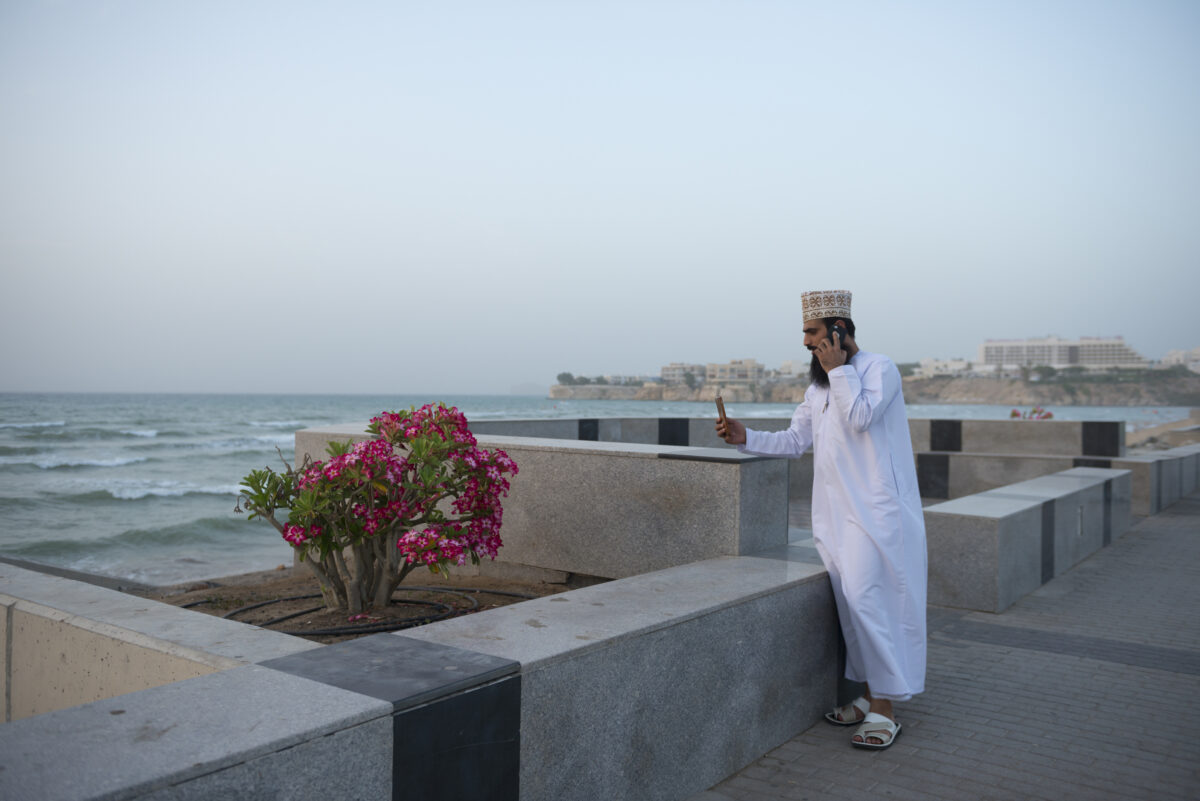The Sultanate of Oman is located in the Arabian Gulf and famous for a few key points. It is often claimed that it is the birthplace of the legendary adventurer Sindbad. Secondly, it is historically (and today) a major trading post given its strategic location on the tip of the Arabian Peninsula connecting east and west. Thirdly, its diverse range of natural beauty and rich history is well-known. Part of Oman Vision 2040, as well as the National Programme for Enhancing Economic Diversification (Tanfeedh), tourism will play a key role in the economic development of Oman in the present and future. The government’s National 2040 Tourism Strategy aims to boost the sector’s contribution to GDP by 6 percent. But what part does fintech and the wider digital transformation play into this?
Oman is part of the Gulf Cooperation Council (GCC) and alongside its fellow GCC neighbours (United Arab Emirates (UAE), Bahrain, Qatar, Saudi Arabia and Kuwait) has been undergoing its own dramatic changes. Similar to its neighbours, the country is undergoing its own economic development and diversification strategy (Oman Vision 2040). Historically generating most of its revenue from oil, Oman is looking to have a future where its economy is more diversified and where the future generation can be innovative and entrepreneurial. Muscat, its capital and largest city, hosts much of its fintech and is the driving force behind much of the innovation and changes. Fintech and wider digital transformation is playing a very important role in that.

According to High Highness (HH) Sayyid Taimur Badr Taimur Al-Said, a member of Oman’s royal family and CEO of Oman International Business Development LLC, “I am very proud of the wider digital and economic transformation that has been happening in the Sultanate. Oman is no stranger to digitalisation and the government has been for many years and is constantly adopting new e-platforms to speed up and ease all public services. In particular, I am amazed and proud as of the increasing number of Omanis who are starting their own tech ventures. Oman and its people are tech savvy and it’s everywhere you go; I am helping commercialise ideas into reality. I am also working towards the further digitalisation of the Omani market by transferring technologies and know-how. Despite all of the accomplishments, there is much more that can help facilitate our growth. For instance, crowd funding through fintech can help founders obtain funding much easily. Nevertheless, our accomplishments as a nation should be acknowledged, aligning with the vision of the ruler of Oman, His Majesty Sultan Haitham bin Tariq.”
HH Sayyid Taimur Badr Taimur Al-Said adds, “Oman is not far behind in the world of technology and innovation. For instance, we have had a technology college since 1984 along with a sovereign wealth fund established for tech funds encompassing all stages of development, putting us in line with the rest of the world with technology and innovation. The late Sultan Qaboos made sure he left his people with all that they need to prepare for the future.”
According to Mughees Shaukat, the Head of Islamic Finance in the College of Banking & Financial Studies under the Central Bank of Oman and a fintech specialist, ” If technology-driven financial innovation is set to lead the fundamental transformations in economic behaviour/growth, resorting to novel and adaptive marketplaces become a crucial component. Narrowing it down to the GCC, digital device penetration is all but on par with developed markets, particularly in view of dwindling oil resources, financial upheavals, economic diversification, and the vision 2040 in case of Oman.”
“Consequently, fintech is the new kid on the block in Oman’s financial universe as Omani banks seem aware that in the unfolding digital economy a customer-centric business model is vital for profitability. However, despite the air of willingness to adopt innovative fintech solutions, the Omani financial industry still appears tentative to integrate fintechs into their strategy, with most choosing an apparent “wait and see” approach. This timidity could be the result of the existing laws and the lack of ecosystem support, essential for stimulating and catalyzing the fintech integration. In Oman, fintech-specific legislation is absent, with no announced plans to fill the gap. Such could be compounding the reluctance, and hence delayed the full-blown phased take-up of digital systems and fintech solutions. However, there is optimism,” adds Shaukat.
HIGH-LEVEL GOVERNMENT SUPPORT

Even before the current ruler, His Majesty Sultan Haitham bin Tariq, who was sworn in earlier this year, the country has been preparing for a digital transformation with fintech playing a part in that. Part of Vision 2040 says, “A Diversified and Sustainable Economy that Is Based on Technology, Knowledge and Innovation, Operates within Integrated Frameworks, Ensures Competitiveness, Embraces Industrial Revolutions and Achieves Fiscal Sustainability.” Although Oman might get overshadowed by the rest of its partner GCC countries, Vision 2040 will help particularly with home-grown small and medium enterprise (SME) innovations.
End of last year, Muscat Bank (the largest financial institution in the country) with the blessing of the Central Bank of Oman (CBO), announced a new $100 million Fintech Investment Programme. Speaking about it at the time, Abdullah Zahran Al Hinai, chief wholesale banking and strategic growth officer, stated, “In line with our corporate vision ‘to serve you better, everyday’, the bank always focuses on adopting cutting edge technology to provide the best in class services and offering innovative digital channels catering to all segments. The programme is also expected to contribute to the wider financial services industry and the economy of the country. Fintech enhances financial inclusion for underserved segments of the economy, particularly for SMEs and personal banking clients.”
Key components in Oman’s ecosystem include many support mechanisms. For instance, Oman Startup Hub (OSH) is a platform for startups, investors, advisors, and entrepreneurs to connect, collaborate and learn about the innovation ecosystem in Oman. Also, the Oman Technology Fund “OTF” aims to put Oman firmly on the map of knowledge leaders in the Middle East. The OTF will effectively work on attracting these types of promising projects to launch their operations in Oman to enhance the knowledge-based economy, and to develop the ICT sector in general, as stated on its website. It is worth noting that ore than one-third of young Omanis (34%) want to start their own business, ranking it as their ideal job role. This was the highest-rated ideal job for young Omanis, beating administration as the second-highest ideal job (28%).
EXAMPLES OF FINTECH AND DIGITALISATION IN PLAY

Earlier this year, the College of Banking and Financial Studies and Bank Nizwa (Oman’s first dedicated Islamic bank, with fully Shari’a compliant products and services), held the first Oman Islamic Finance Youth Forum under the theme ‘The New Age (FinTech) Islamic Finance and the Youth of Oman.’ The event highlighted how fintech can boost and grow the Islamic finance sector, while focusing on the role of Omani youth in leading this trend and the industry now and into the future. The forum’s program was crafted carefully to tackle key opportunities and challenges related to FinTech in Islamic Finance and the role of youth. Notable speakers at the event were H.E. Tahir bin Salim bin Abdullah Al Amri (Executive President, Central Bank of Oman), Dr. Sami Al-Suwailem (Director General of the Islamic Research and Training Institute (IRTI), the Islamic Development Bank Group, Jeddah, Saudi Arabia), Omar Mustafa Ansari (Secretary General, Accounting and Auditing Organisation for Islamic Financial Institutions (AAOIFI), Bahrain), and Professor Dr Hussain Qadri (Chairman Board of Governance Minhaj University, Higher Education Commission, Pakistan).
In terms of traditional companies such as airlines, Oman Air, the Sultanate’s national carrier, partnered with BankDhofar, Oman’s second largest bank (by market value), to launch an e-commerce payment gateway platform. This allows for Oman Air customers to make bookings online using their debit cards for instant payment transactions. Suleiman Al Ghannami, Oman Air Chief Financial Officer, stated, “Oman Air is delighted to partner with BankDhofar and its e-commerce payment gateway platform to offer customers a convenient way to purchase their flight tickets online and on our mobile app. This partnership proves our commitment towards improving our customer experience with the introduction of convenient payment options.”
Meanwhile, Ahmed Said Al Ibrahim, Chief Operating Officer at BankDhofar, said, “BankDhofar is committed to providing quality products and services that fit in seamlessly to our customer’s needs and adapt to the increasingly changing technological trends. With this solution offered to Oman Air, BankDhofar aims to reaffirm its position as a leading bank in the Sultanate in providing secured payment solutions.”

A prime example of Omani entrepreneurship in fintech has been Thawani, which was established in early 2016 as an innovative startup allowing cashless mobile payment solutions to merchants and individual shoppers and buyers alike. As stated on their website, they are the first digital platform in Oman, custom-built according to international banking and safety standards to allow all our users easy and secure transactions. Back in May, The CBO issued the first license to non-bank financial entities (fintech companies) to Thawani Technologies for complying with all regulatory requirements.
Finally, Omani entrepreneurship spirit is being felt as well by exporting its talent and know-how such as with venture capital (VC) firm Phaze Ventures that focuses mainly on energy, logistics and technology start-ups. Having seven global investments on its books spanning Canada, the US, France and Oman, the VC is looking now to the UK for its third round of cohorts for its accelerator programme. They invest at the seed and Series A stage, with investments worth around $100,000 to $500,000 per company.
Shaukat adds, “The current move of creating a full fledge fintech committee in the Central Bank, the launch of $100 million fintech fund by the biggest bank, formal awareness campaigns on the subject by government bodies like CBFS, the creation of the Oman Block Chain Society, Oman Technology Fund (OTF) and the nation’s first comprehensive e-payment platform, Thawani Pay are testimonial of Oman’s growing awareness. Moreover, with the scenario fast becoming an “Adapt or Die’ approach intertwined with the local and multipolar economic demands, there is much more amplification desired. There is a need to not only mould and refine the existing legislations, for example, the Omani Banking Law, the Electronics Transactions Law (ETL), the Civil Transactions Law, the Consumer Protection Law, the Commercial Code of Oman and other similar laws, but there is also a pressing need to renovate and innovate the best-suited laws for fintech driven ends. Currently fintech transactions are subject to ETL, akin to all other forms of electronic transactions. With the scenario fast becoming an ‘Adapt or Die’ approach, intertwined with the local and multipolar economic demands, the magic sauce could be the creation of soft infrastructure inclusive of attuned human capital alongside a sound regulatory environment, to up scale the flexibility required to demonstrate positive results. It appears that the new leadership by His Majesty Sultan Haitham Bin Tariq, and the youthful focus of few crucial measures, in times of post-pandemic where ‘BigTechs’ are becoming the actual competition than the (complimentary) fintechs, appears the right promise for new-age version of technology-driven financial world in Oman.”
Despite the challenges at present with COVID-19, Oman still has its strong fintech and wider digital transformation ambitions. Despite its reliance on oil, economic diversification and development will play a key role in its future; that also includes fintech and wider digital.



